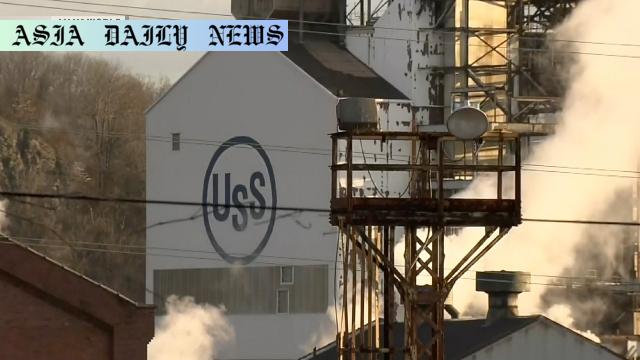Nippon Steel: Trump announces Japanese firm investing in US Steel instead of acquisition after negotiations.
Nippon Steel shifts from buying U.S. Steel to making an investment deal following Trump’s intervention.
The move addresses concerns on national security and job protection.
Union leader McCall criticizes Nippon’s trade practices and seeks domestic solutions.
The Wall Street Journal mentions possible expansion for Nippon in the U.S. steel market.
Biden previously blocked the takeover citing security concerns, leading to a legal dispute.

Nippon Steel’s Shift in Strategy: Investing in U.S. Steel
Nippon Steel, a prominent Japanese steelmaker, has opted to invest in U.S. Steel instead of acquiring the company. This decision comes amidst significant political and public scrutiny. President Donald Trump announced this shift following a summit meeting with Japanese Prime Minister Ishiba Shigeru. Trump highlighted that while Nippon originally planned to buy the U.S.-based steel giant, they restructured their approach after extensive discussions, turning it into a heavy investment rather than a full acquisition.
Why the Change Matters
The announcement underscores multiple economic and political stakes. Trump expressed opposition to the buyout, citing psychological and nationalistic concerns, remarking that U.S. Steel is a “very important company” to the nation. By reframing the deal as an investment, the administration hopes to preserve more local control over the steelmaker without halting foreign collaborations altogether. This strategic pivot also addresses broader apprehensions regarding national security associated with foreign ownership of critical industries.
Union Concerns and Industry Implications
However, not everyone is convinced the new arrangement eliminates risk. David McCall, leader of the United Steelworkers union, criticized Nippon Steel’s involvement, labeling it a “serial trade cheater” with a history of dumping products into the U.S. market. McCall’s statement reflects ongoing fears about the long-term repercussions for domestic steelworkers and production.
Building a Path Forward
Despite skepticism, some experts view the pivot as an opportunity for Nippon Steel to deepen its market position in the U.S. without alienating political stakeholders or labor unions. Notably, The Wall Street Journal reported that this shift could allow Nippon Steel to strengthen its role in the American steel sector, potentially leading to industrial growth, job creation, and innovation.
A Look Back: Biden’s Role
It’s essential to consider the Biden administration’s prior decision to block Nippon Steel’s buyout attempt. President Biden had issued an executive order halting the acquisition, citing concerns over national security and the strategic importance of U.S. Steel to the American economy. That decision led to a legal standoff between the two companies, as they sought to challenge the order and demand a reevaluation of the merger.
Future Negotiations
President Trump, who has been a vocal critic of foreign acquisitions during his 2024 campaign, plans to meet with Nippon Steel executives next week. This meeting is expected to clarify the terms of the investment and pave the way for future agreements. At this stage, the exact details of the investment remain unclear, but both economic analysts and stakeholders will be closely monitoring its impact on the domestic steel industry.
Final Thoughts
The restructured Nippon Steel and U.S. Steel deal reflects the complex intersection of economics, politics, and national security. While some see this as a necessary safeguard for American interests, others argue it may still pose challenges for competition, market dynamics, and worker protections. As discussions progress, the outcome of this agreement will set the tone for future international collaborations in key industries.
Commentary
Navigating a Delicate Balance
The decision by Nippon Steel to invest in U.S. Steel instead of acquiring it highlights the ongoing tension between globalization and national interests. From a political perspective, Trump’s intervention reflects his administration’s focus on safeguarding national industries and job security. This protectionist stance offers immediate reassurance to domestic workers and stakeholders but could send mixed signals about the U.S.’s approach to foreign partnerships.
Union Concerns and Valid Critiques
The criticism from union leader David McCall is a noteworthy reminder of the challenges embedded in this deal. Nippon Steel’s past record of trade practices does merit closer scrutiny. Simultaneously, his call for exclusively American alternatives, though well-intended, could overlook the benefits of foreign investments in fostering innovation and competition. Policymakers will have to find a way to strike this intricate balance.
Looking Ahead
As negotiations continue, all eyes will be on the specifics of the upcoming deal. Will Nippon Steel’s investment push lead to job creation and industrial growth? Or will it result in a controlled narrative that neither satisfies domestic labor unions nor capitalizes on globalization’s opportunities? Whatever the case, this development underscores the importance of transparency, fair trade practices, and a commitment to long-term economic health for all parties involved.


